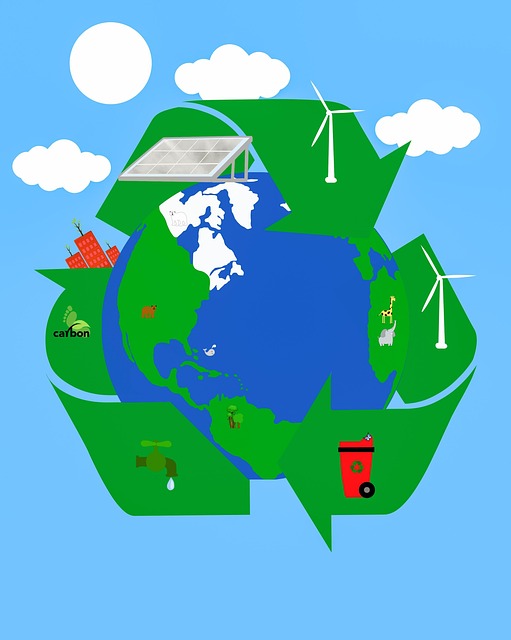In today’s digital age, electronic devices have become indispensable for non-profit organizations. From computers and printers to smartphones and tablets, these tools help non-profits operate efficiently and achieve their missions. However, with the constant upgrade of technology, electronic waste (e-waste) has become a growing concern. This raises the question: Is non-profit organizations need e-waste recycling? The answer is a resounding yes.
In this in-depth guide, we’ll explore why e-waste recycling is essential for non-profits, how it benefits them, and the steps they can take to implement effective e-waste management practices.
Why Is Non-Profit Organizations Need E-Waste Recycling?
Non-profit organizations, like any other entity, generate significant amounts of e-waste. From outdated computers to broken printers, these discarded electronics can have serious environmental, legal, and ethical implications if not handled properly. Here’s why non-profits need to prioritize e-waste recycling:
1. Environmental Responsibility
Non-profits often champion social and environmental causes, making it crucial for them to practice what they preach. E-waste contains hazardous materials like lead, mercury, and cadmium, which can leach into soil and water, causing environmental damage. By recycling e-waste, non-profits can reduce their environmental footprint and align their operations with their mission of sustainability.
2. Legal Compliance
Many countries and regions have strict regulations governing the disposal of e-waste. For example, in the United States, the Resource Conservation and Recovery Act (RCRA) regulates the disposal of hazardous waste, including certain electronics. Non-profits must comply with these laws to avoid fines, legal issues, and reputational damage.
3. Data Security
Non-profits often handle sensitive information, such as donor details, client records, and financial data. Improper disposal of electronic devices can lead to data breaches, putting this information at risk. E-waste recycling ensures that data is securely destroyed, protecting the organization and its stakeholders.
4. Cost Savings
Recycling e-waste can also be financially beneficial for non-profits. Many recycling programs offer buy-back or trade-in options, helping organizations offset the cost of upgrading their equipment. Additionally, donating or recycling electronics may qualify non-profits for tax deductions in some countries.
5. Reputation and Donor Trust
Donors and supporters are increasingly prioritizing sustainability. By demonstrating a commitment to e-waste recycling, non-profits can enhance their reputation, build trust, and attract more support.
6. Resource Recovery
E-waste contains valuable materials like gold, silver, and copper, which can be recovered and reused. Recycling these materials reduces the need for mining, conserves natural resources, and supports a circular economy.
How Non-Profit Organizations Can Recycle E-Waste
Implementing an effective e-waste recycling program doesn’t have to be complicated. Here are some practical steps non-profits can take:
1. Partner with Certified Recyclers
Working with certified e-waste recycling companies ensures that electronics are disposed of responsibly. Look for certifications like R2 (Responsible Recycling) or e-Stewards, which guarantee environmentally sound practices.
2. Donate Usable Equipment
Functional electronics that are no longer needed can be donated to schools, community centers, or other non-profits. This not only extends the life of the devices but also supports underserved communities.
3. Host E-Waste Drives
Organizing community e-waste collection events is a great way to responsibly recycle electronics while raising awareness about the importance of e-waste management.
4. Use Manufacturer Take-Back Programs
Many electronics manufacturers, such as Apple, Dell, and HP, offer take-back programs for old devices. These programs ensure that electronics are recycled or refurbished responsibly.
5. Educate Staff and Volunteers
Training staff and volunteers on the importance of e-waste recycling and proper disposal methods can help ensure compliance and foster a culture of sustainability.
Challenges Non-Profits Face in E-Waste Recycling
While e-waste recycling offers numerous benefits, non-profits may encounter some challenges:
1. Cost
Recycling e-waste can be expensive, especially for smaller non-profits with limited budgets. However, the long-term benefits often outweigh the initial costs.
2. Awareness
Many non-profits are unaware of the importance of e-waste recycling or the available options. Education and outreach are key to addressing this issue.
3. Logistics
Managing the collection, transportation, and disposal of e-waste can be challenging without proper resources. Partnering with certified recyclers can help streamline the process.
The Environmental Impact of E-Waste
To understand why e-waste recycling is so important, let’s take a closer look at its environmental impact:
| E-Waste Component | Environmental Impact |
| Lead | Contaminates soil and water, harmful to human health |
| Mercury | Toxic to the nervous system, accumulates in the food chain |
| Cadmium | Causes kidney damage and respiratory issues |
| Plastics | Non-biodegradable, contributes to landfill waste |
By recycling e-waste, non-profits can help mitigate these environmental hazards.
Benefits of E-Waste Recycling for Non-Profits
Here’s a quick overview of the key benefits:
- Environmental Protection: Reduces pollution and conserves natural resources.
- Legal Compliance: Ensures adherence to e-waste disposal regulations.
- Data Security: Protects sensitive information from breaches.
- Cost Savings: Offers financial incentives through trade-ins and tax deductions.
- Reputation Boost: Enhances donor trust and organizational credibility.
Conclusion: Is Non-Profit Organizations Need E-Waste Recycling?
The answer is clear: Yes, non-profit organizations need e-waste recycling. By adopting sustainable e-waste management practices, non-profits can fulfill their environmental, legal, and ethical responsibilities. Not only does this protect the planet, but it also strengthens their mission, enhances their reputation, and builds trust with donors and supporters.
Whether it’s partnering with certified recyclers, donating usable equipment, or hosting e-waste drives, there are numerous ways for non-profits to make a positive impact. The challenges may exist, but the benefits far outweigh them.
By prioritizing e-waste recycling, non-profit organizations can lead by example and contribute to a greener, more sustainable future.

Leave a Reply